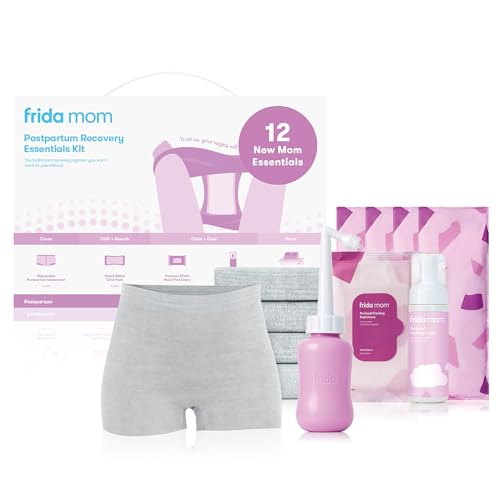In the US, making the most of your maternity leave means understanding your options, including FMLA’s unpaid leave and any state or employer benefits that offer paid time off. Planning ahead and communicating your needs can help you access flexible schedules, pumping spaces, and support for breastfeeding. While paid leave isn’t guaranteed, your time at home is valuable for bonding and recovery. Continue exploring to discover how to maximize your maternity leave experience.
Key Takeaways
- Understand your legal rights under FMLA and state laws to maximize available leave options and protections.
- Plan and communicate your leave schedule early to access employer-provided benefits and support.
- Use your time at home to establish breastfeeding routines and bond with your baby.
- Explore workplace accommodations like flexible hours and dedicated pumping spaces for ongoing support.
- Access external resources and advocate for your needs to ensure a smooth, supported postpartum experience.

Have you ever wondered how maternity leave works in the United States? If you’re expecting or recently welcomed a new baby, understanding your rights and options can feel overwhelming. Unlike many countries, the US doesn’t guarantee paid maternity leave at the federal level, but you still have several ways to make the most of your time off. One key aspect to consider is how you can access breastfeeding support during this period. Many employers are increasingly aware of the importance of supporting new mothers, so they might offer flexible schedules or dedicated spaces for breastfeeding or pumping. It’s worth checking your company’s policies or talking to HR about your needs. Additionally, knowing your parental rights can empower you to advocate for the support you deserve. Laws like the Family and Medical Leave Act (FMLA) provide eligible employees with up to 12 weeks of unpaid leave, protecting your job while you focus on caring for your newborn. To qualify, you need to work for a covered employer and meet certain length-of-service requirements, so it’s important to verify your eligibility early on. While FMLA doesn’t guarantee pay, some states and companies offer paid family leave or supplemental benefits, so it’s worth exploring those options. Planning ahead is essential—talk to your employer about your intended leave dates and ask about available benefits. When it comes to breastfeeding, this time can be vital. Many new mothers find that having ample time at home helps establish a breastfeeding routine, which can benefit your baby’s health and your comfort. If your employer provides breastfeeding support, take full advantage of it, whether that’s flexible hours, a private pumping room, or resources on lactation. Remember, your parental rights aren’t just about job protection—they also include the right to breastfeed and receive support for it. If you encounter any obstacles, you can consult local laws or organizations that advocate for parental rights and breastfeeding support. It’s important to communicate your needs clearly and early, so your employer understands how they can assist you. Preparing for your leave by understanding your options and rights helps you focus on what truly matters—bonding with your baby and establishing a healthy routine. Whether it’s taking advantage of available benefits, seeking breastfeeding support, or simply guaranteeing your job is protected, being informed puts you in control during this special time. Remember, even without paid leave, your time at home with your newborn is invaluable, and knowing your rights ensures you can make the most of it with confidence. Additionally, understanding essential oils for postpartum comfort can provide natural relief and relaxation during this period.

My Brest Friend Nursing Pillow – Deluxe – Enhanced Comfort w/ Slipcover – Ergonomic Breastfeeding Pillow For Ultimate Support For Mom & Baby – Adjustable Pillow W/ Handy Side Pocket, Soft Rose
ERGONOMIC DESIGN: Elevate your nursing journey with our unique nursing pillow. The wrap-around feature ensures ideal positioning &…
As an affiliate, we earn on qualifying purchases.
As an affiliate, we earn on qualifying purchases.
Frequently Asked Questions
Can I Extend My Maternity Leave Beyond the Standard Duration?
You might be able to get an extended leave beyond the standard duration by discussing flexible scheduling options with your employer. Some companies offer unpaid or partially paid leave extensions, especially if you have a medical or personal need. It’s crucial to review your company’s policies and speak directly with HR to explore your options. Planning ahead and understanding your rights can help you make the most of your time off and facilitate a smooth transition.
What Are My Rights if My Employer Denies Maternity Leave?
If your employer denies maternity leave, you have legal protections under the Family and Medical Leave Act (FMLA), which requires eligible employers to provide up to 12 weeks of unpaid leave. Review your employer’s policies and verify they conform with federal laws. If denied, consider consulting a lawyer or filing a complaint with the Department of Labor to enforce your rights and seek necessary remedies.
How Does Maternity Leave Affect My Health Insurance Coverage?
Think of your health insurance as a sturdy bridge supporting you through life’s changes. During maternity leave, your coverage should continue seamlessly, maintaining your health insurance benefits and coverage continuity. Most employers and laws guarantee your insurance stays intact, so you can focus on welcoming your baby without worry. Just verify your employer’s policies and communicate with your provider to avoid gaps, ensuring your health needs are always covered.
Are Dads or Partners Eligible for Paternity Leave in the US?
You might wonder if you’re eligible for paternity leave in the US. While laws vary by state and employer, many workplaces now offer paternity rights and partner benefits, allowing you to take time off to support your family. Check your company’s policies and local laws to confirm your eligibility. Taking paternity leave helps you bond with your baby and share responsibilities, making it a valuable benefit for partners.
What Financial Assistance Options Are Available During Maternity Leave?
Did you know only about 20% of US workers receive paid family leave? During your maternity leave, explore federal programs like the Family and Medical Leave Act (FMLA) and state benefits, which may offer partial wage replacement or job protection. Check if your state has specific benefits, as eligibility varies. These options can help ease financial stress while you focus on your new arrival.

Rose Home Fashion 6 ft Tall Room Divider, Room Dividers and Folding Privacy Screens, 15.7in Privacy Screen 4 Panel Partition Temporary Wall Separation for Private, Dark Coffee
More privacy: This elegant room divider is 6 ft. tall by 16" wide for each panel. Portable room…
As an affiliate, we earn on qualifying purchases.
As an affiliate, we earn on qualifying purchases.
Conclusion
Now that you know your options and rights, you can make the most of your maternity leave. Think of this time as a precious window to bond with your newborn, recharge, and create lasting memories. Isn’t this fleeting moment worth cherishing? By planning ahead and prioritizing self-care, you’ll return feeling stronger and more connected. So, why not embrace this special chapter fully, knowing it’s a once-in-a-lifetime opportunity to nurture both your baby and yourself?

Expecting and Organized New Baby Planner – Pregnancy Organizer and Checklist Journal for First-Time Moms – 140+ Page Hardcover Keepsake by Undefining Motherhood
Trusted by thousands. No paid placements. Every product is tested and updated yearly by real moms with PhDs—offering…
As an affiliate, we earn on qualifying purchases.
As an affiliate, we earn on qualifying purchases.

Frida Mom 11pc Postpartum Essentials Kit Gift Set, Hospital Bag Must Haves for New Mom, Includes 4 Disposable Postpartum Underwear, 4 Ice Maxi Pads, Perineal Healing Foam & 24 Pad Liners & Peri Bottle
COMPLETE POSTPARTUM RECOVERY KIT: Comprehensive postpartum essentials included are the Disposable Postpartum Underwear (4), Instant Cooling Ice Maxi…
As an affiliate, we earn on qualifying purchases.
As an affiliate, we earn on qualifying purchases.









